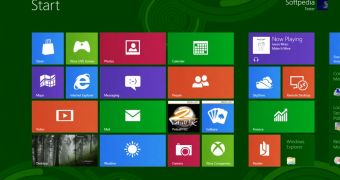Windows 8 will arrive with a great flavor of Microsoft’s own browser, Internet Explorer 10, the Redmond-based company has stated a few times before.
In fact, there is a strong possibility that this would be the only modern browser that users will be able to take advantage of on specific versions of Windows 8, namely on Windows on ARM, or Windows RT.
While the upcoming platform version will provide users with the ability to enjoy any browser on x86 architectures, it will restrict the use to only Metro-style navigation applications on ARM devices.
Basically, all apps designed for the platform, with the exception of several applications from Microsoft, Internet Explorer 10 included, will be Metro apps.
For them, access to the popular “desktop mode” in Windows will be restricted, the same as the possibility to take advantage of specific APIs.
For browser makers, this spells unlawful competitiveness: their software won’t deliver the same capabilities and features as Internet Explorer 10, nor will they be able to match the performance of this app.
Mozilla and Google, the makers of the popular Firefox and Chrome browsers for Windows, have already expressed concerns on this.
Mozilla spokesman Asa Dotzler explains it in a recent blog post: “It's that running a browser in Classic is the only way that Microsoft has allowed us to get access to the APIs that a browser needs to deliver modern capabilities and performance in Classic AND Metro.”
A Google spokesperson backed these sayings: “We share the concerns Mozilla has raised regarding the Windows 8 environment restricting user choice and innovation.”
Windows 8 will pack a wide range of changes on ARM, due to the fact that the software company has been focused on “cleaning up” the code in Windows, thus packing the Windows RT flavor only with some of the elements of Windows, but not all of them.
It runs on a new architecture, has a smaller install size, requires a new development environment and, while most of us see it as a new flavor of Windows, Microsoft suggests that this is not Windows anymore.
Clearly, Windows 8 will arrive with various limitations on ARM devices, starting with the fact that no legacy application will be available for its users, except, of course, for the aforementioned software from Microsoft.
However, Mozilla and Google have a point too. Since it is a direct competitor on the browser market, Microsoft has to provide third parties with similar options as it takes advantage of on its own.
It’s also worth noting that the software giant has been struggling to maintain its leadership in the browser area on Windows, and has managed to do so successfully.
At the moment, Internet Explorer 9 accounts for 35.5 percent market share worldwide on Windows 7, and reached 52.9 percent usage in the United States on this platform.
Through restricting third-party browsers on Windows RT from accessing the same APIs as IE 10, Microsoft is sure to benefit from increased success of its application. This might not be the company’s intention at all, yet it remains to be seen how it will respond to Mozilla’s and Google’s allegations.

 14 DAY TRIAL //
14 DAY TRIAL //